This Is So Compelling And Heartbreaking And Important And I Wanted To Share It. This Is The Reality Of
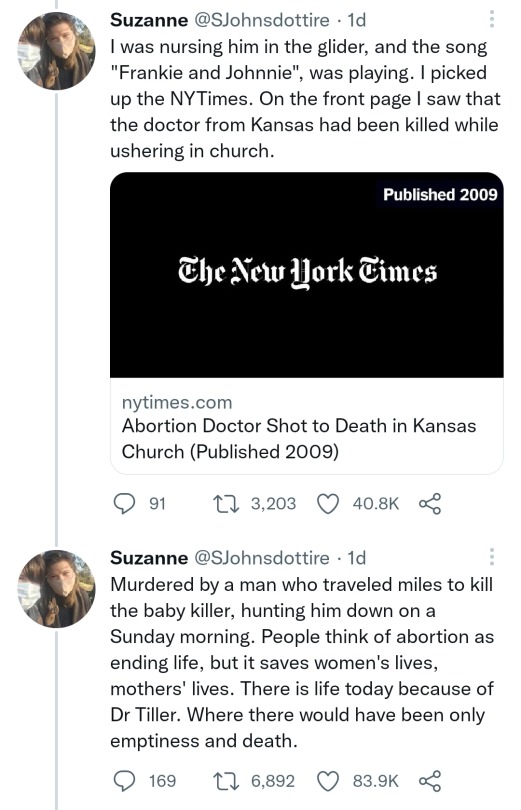
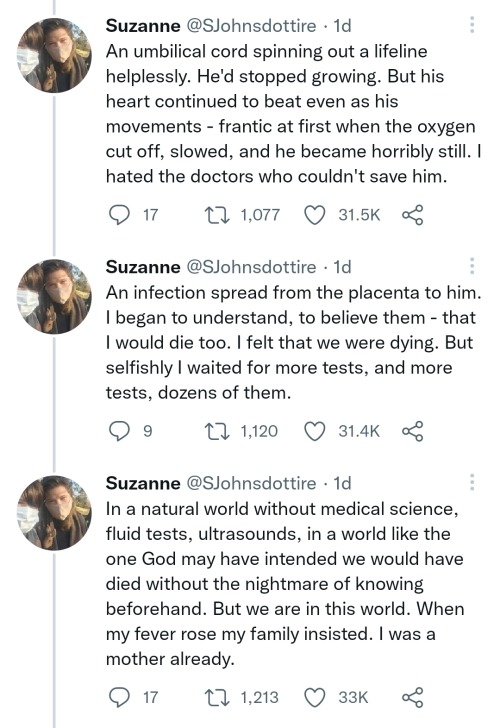
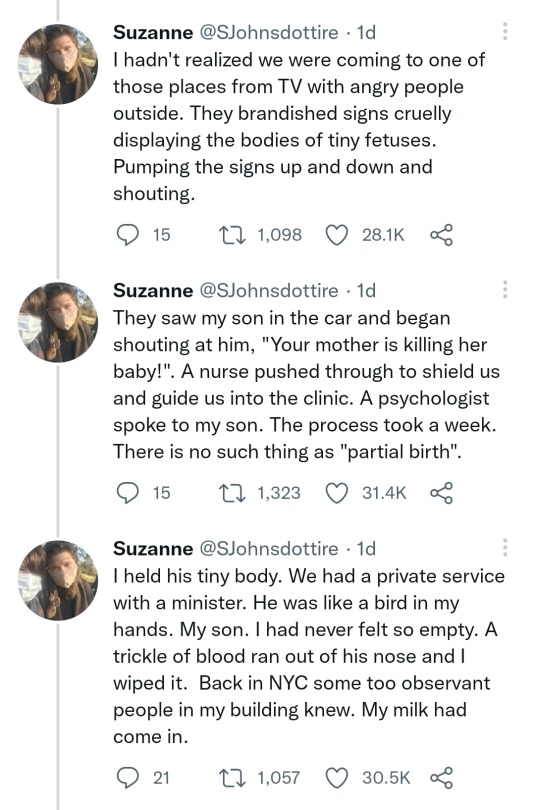
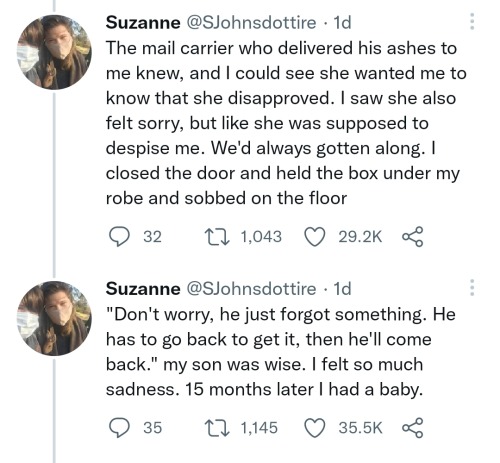
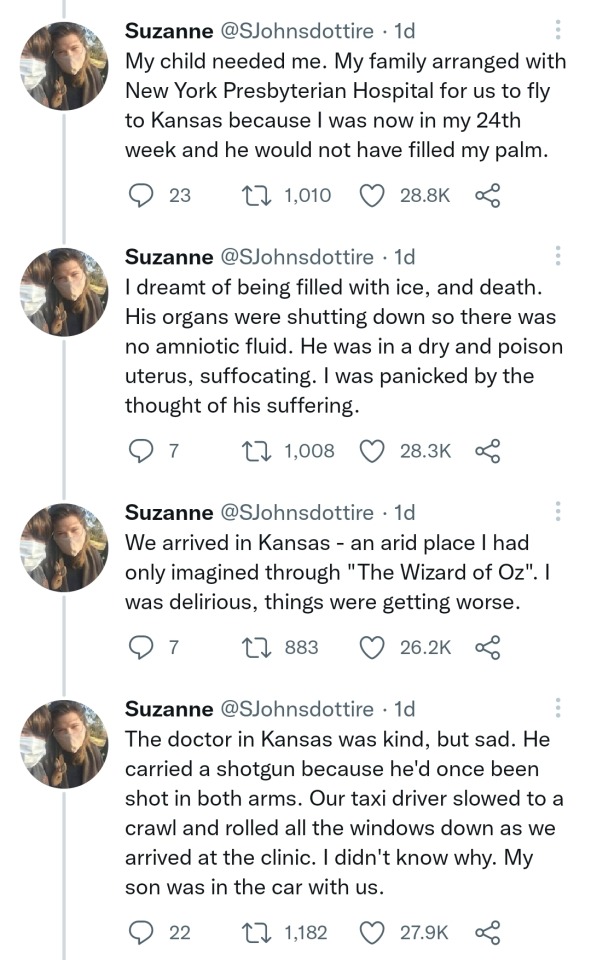
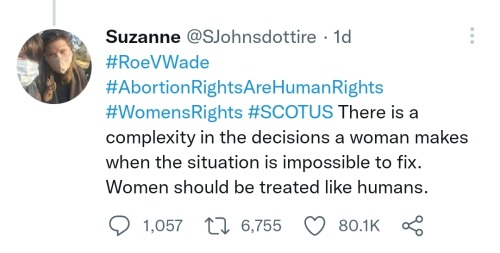
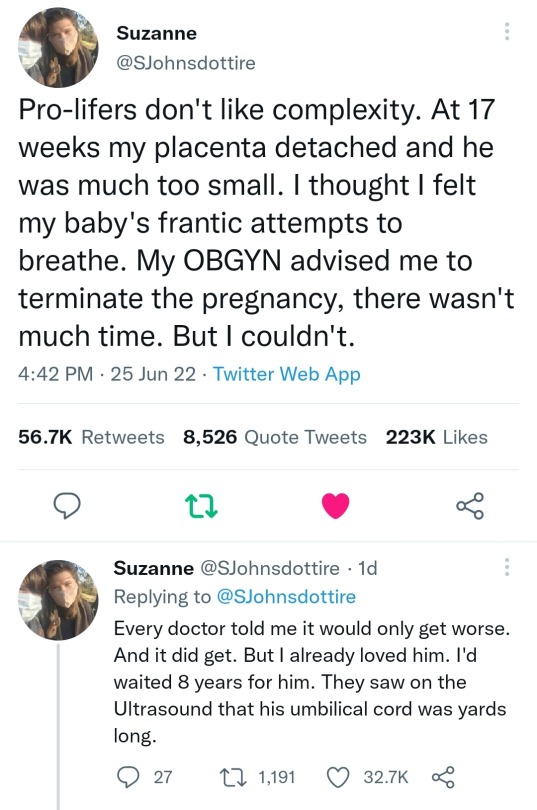
this is so compelling and heartbreaking and important and i wanted to share it. this is the reality of getting an abortion even with roe v wade in place and it's about to get worse.
More Posts from Dontkickmyshin and Others
I love me a pseudo-historical arranged marriage au but it always nudges my suspension of disbelief when the author has to dance around the implicit expectation that an arranged marriage should lead to children, which a cis gay couple can't provide.
I know for a lot of people that's irrelevant to what they want from an Arranged Marriage plot, but personally I like playing in the weird and uncomfortable implications.
So, I've been thinking about how you would justify an obviously barren marriage in That Kind of fantasy world, and I thought it'd be interesting if gay marriage in Ye Old Fantasy Land was a form of soft disinheritance/abdication.
Like, "Oh, God, I don't want to be in this position of power please just find me a boy to marry", or, "I know you should inherit after you father passes but as your stepmother/legal guardian I think it'd make more sense if my kids got everything, so maybe consider lesbianism?", or "Look, we both know neither of our families has enough money to support that many grandkids, so let's just pair some spares and save both our treasuries the trouble".
Obviously this brings in some very different dynamics that I know not everyone would be pinged by, but I just think it'd be neat.



Handprint
BEST accounts to follow as a writer
It's been a long time since my last visit here on Tumblr, right? So, as a comeback and since you loved my masterpost of websites for writers, I am bringing you my favorite Tumblr blogs to follow if you're a writer and are interested in finding lots of inspo on your timeline, as well as prompts, tips, and useful resources. Shall we start?
PROMPTS:
@givethispromptatry
@dailystoryprompts
@here-haveaprompt
@dark-fiction-and-angst
@youneedsomeprompts
@deity-prompts
@whygodohgodwhy
@writinghoursopen
@fluffyomlette
@promptsforthestrugglingauthor
@novelbear
@gfuckign
@ghostly-prompts
WORLD BUILDING INSPO / PROMPTS:
@worldbuildingprompts
@locationbuildingprompts
@wbqotd
@wildworldwritingprompts
@worldbuilding-question
@thealpha-chronicles
@happyheidi
@enchantedengland
@ancientsstudies
@greeksblog
OC PROMPTS:
@yourocdoeswhat
@questionsforyourocs
@oc-question
@oc-dev
@characterization-queries
@oc-factoids
@tag-that-oc
@some-oc-questions
GENERAL WRITING ADVICE:
not all of the following accounts post things but they reblog useful info
@writing-with-olive
@tstrangeauthor
@everythingwritingg
@writerthreads
@heywriters
@thewritersphere
@writelively
PS: If you think your account fits any of these categories, feel free to comment! Someone will check it out!!! :D
this shouldn’t have to be said but if someone who struggles with cognitive issues such as fibro fog, autism or adhd etc has difficulty speaking or getting their point across, do not point it out. im talking about stuttering, misremembering words and definitions, using the wrong words in place of other ones, mixing up words or merging them together. you are allowed to help us find the right word but wait for us to ask first and give us a chance to find it ourselves. blurting out random words causes a lot more confusion for us and we often end up losing our train of thought.
also, in a similar vein, we may pause to think about what we’re going to say next, and it’s important that you not interrupt. for me, my train of thought is already on the verge of derailing. if i stop talking mid-sentence, give me a second to find my words and sort out my jumbled mess of a brain. don’t start speaking like we’ve finished our sentence and please don’t just abandon the conversation. it’s very frustrating, especially when you make jokes or tease us for forgetting words or misspeaking and it makes it much harder for us to get to our point. and tbh it’s embarrassing and it sucks because our brains aren’t doing what we want or need them to do and we don’t need a reminder every time it happens.
like the jokes might seem harmless or lighthearted but it hurts nonetheless because we are constantly in a struggle against our own brains. it seems like it should be such an obvious thing, not to tease or make fun of someone with cognitive issues, but so many people do it, including some of you who don’t think you do— particularly if you don’t think the reason behind it is a disability. it’s not the same as joking about your friend making a typo in the group chat. those are minor slip-ups and they happen to everyone. for a lot of us, they’re constant. we’re almost always trying to get our brains to work with us rather than against us and pointing it out only makes it that much harder to concentrate on actually articulating our thoughts instead of focusing purely on avoiding misspeaking so you won’t point it out again. obviously this will vary from person to person, not everyone with these symptoms feels the same way i do, but i think it’s a good rule of thumb to just. not interrupt and/or draw unnecessary/unwanted attention to our speech problems. i don’t think it’s too much to ask.
LIKEEEE
(spoilers under the cut)

to explain the context of this song (would've could've should've from midnights) taylor is talking about how if she never met the man who groomed her at a young age, she never would've experienced many things that resulted in her losing her innocence so quickly.
obvi this situation isn't super specific to donald, but i think you get how it speaks to how if his whole...childhood situation didn't happen he'd never have sold his soul with the union. he'd have grown into a sweet and kind boy who loves chocolate and is the top of his class and is en route to becoming a future nasa engineer, but now he's the boss of a criminal empire and is committing real estate fraud. he runs from his memories now that he's older, from the feeling of being weak and pitiful, being bullied in school and beat up by his stepdad at home with his new persona.
he's too terrified to confront the past and hides from it under the illusion of strength, but simultaneously he holds it close as a reminder of what might become of him if he doesn't keep striving, keep working till he dominates anything and everything.

the way taylor sings the bridge is so full of ??desperation?? the chorus is fast-paced, with a tone of regret and anguish that creates anticipation for the bridge. which taylor delivers, by the way, bc if the tone of the chorus is one of despair and haunting memories, the bridge practically blares it in your face!!
'God rest my soul, I miss who I used to be' carries resignation and hopelessness, and it reminds me of how donald transformed himself completely into someone he hated. he covered himself head to toe in tattoos even though they disgusted him, pierced every available inch of skin on his ears and his face (thank Razen he didnt get a nose piercing though🙏🙏THAT WAS NEVER THE MOVE) and bought those expensive but scary ass clothes just so he could pull off his 'intimidating' image. he invested so much time and so much money...for what?
i read on Genius.com that 'the tomb won't close' means taylor can't find peace with her situation despite trying. similarly, donald has never stopped hurting because of his past, yet he doesn't confront it. he runs from the pain in an attempt to escape without realising he's just running in circles.

verse three has GOT to be my favourite part in the song. you can really feel the frustration delivered by the last two lines of the song as the pitch and speed increases (soz hope im not wrong in saying this). it reminds me of how donald initially felt ashamed of the helplessness displayed in his childhood and adamant that he never experience it again, versus donald right before his death, finally looking back on his younger self with love and protectiveness.
it also holds the feeling that you get when you feel as if something has been taken from you. donald feels the unfairness of his childhood and innocence being robbed from him at such an early age. he mourns the injustice that his younger self was treated with, and my personal interpretation is that he wishes he could change it. it's normal when you feel like something was stolen from you...which in his case, it most definitely was.

donald is also SUCH a mirrorball girly. yes, he's always been a natural at everything (he's strong, he's smart, and he's sexy. what CAN'T he do?) but he's done nothing but try all his life. he had to work so hard from such an early age, and he could never stop to take a break, because if he stops, he dies. his mom is dead. his stepdad has left him. he's a newly orphaned 13 year old with no money and no school. if he doesn't look after himself, he passes away on the streets.
he never wanted to do crime. even in the union, he wanted to gravitate more towards the business parts of his job. he never got to experience a life where he got to do what he wanted rather than have to fight for survival all the time. he never got the option to learn that he doesnt have to live the rest of his life punished for his poverty and broken home.
because yk, there wasn't a 'rest of his life'.



the archer is another song. don't think i have to explain how the first couple of lyrics express the loneliness he felt in his journey to the top, but ARGHHHH!! the lines 'i cut off my nose just to spite my face, then hate my reflection for years and years...' it's so him, covering his whole body with tatts knowing he'll feel repulsed everytime he looks in the mirror.
the rest of the verse imo, embody the panic and trauma he must've felt with his circumstances that he probably subdued while he was alive.
i bet on losing dogs and class of 2013 by mitski are also honorable mentions


so kudos to taylor for being able to write music that panders not just to academically burnt out eldest daughters but also seventeen year old mafia bosses created by (assumably) generational poverty and a screwed up system
@weakhero-diaries
do you guys get it if i say donald na is taylor swift coded
the idea that it’s ‘creepy’ to interact with things posted a long time ago is so terrible for artists and contributes to the pressure to be constantly creating new work, at an unhealthy and unsustainable rate. I hate it so much.

Collective amnesia makes us feel as if there are no bi people in history. That is, until we see that bi people have been there all along, they’ve just been mislabeled or left out of the narrative. Bisexuality is the sexual and/or romantic attraction to multiple genders. Nestled within the term bisexual are other labels, including pansexual, omnisexual, and polysexual. Which term people use is almost entirely down to preference, although sometimes the choice is driven by an ahistorical misconception that the bi in bisexual reinforces a gender binary and excludes trans and nonbinary people.
One reason why we might “forget” bisexuals is because those who are attracted to people of multiple genders rarely call themselves bi. Historically, there have been a number of reasons for this, including wanting to avoid discrimination and stigma. There have long been toxic misconceptions of bisexual people as promiscuous and unfaithful, in a confused state of sexual transition or experimentation, lying about their attractions for attention or to attract men (particularly bi women), or simply adhering to some sort of trend (particularly young people).
Being bi could also get you kicked out of your local queer space. Bisexuality introduces nuance, which has always made it easier to discard than accommodate it. In tough times, when queer people were fighting for their lives and for basic legal protections, some gay rights groups strategically rejected bisexual people. For example, in the 1970s there were instances where the Gay Liberation Front, a queer-rights group, treated bisexual people as effectively straight, and thus associated them with regressive politics and edged them out of the organization.
But historians have never let a lack of self-labeling prevent them from trying to find queer people in history. People also shied away from terms like gay or lesbian, and yet we can find many books on their history. Still, it was only when I went back to university for a master’s in queer history that I realized that the absence of bisexuality in most versions of LGBTQ+ history wasn’t because there were no bi people in the past. Rather, that lack of knowledge is the result of an overcompensation for compulsory heterosexuality, which has meant that most people with homosexual desires in the U.S. were forced to live lives that involved heterosexual sex and relationships.
In the search for queer lives in the past, one way that academics have dealt with this is to assume that people who had any kind of same-sex desires or sex must have been gay or lesbian, even if they were also in heterosexual relationships. Partly because of this, the term bisexual is often entirely absent from historians’ writings. By doing so, we are systematically mislabeling people who were attracted to multiple genders, erasing bi history. When we untether bisexual people from their own past, we obscure the ways in which bisexuality is a cornerstone of the human experience.
Here are some important people in bi history you should know:
The bisexuality researchers you need to know
One of the earliest researchers to legitimize the study of bisexual people was Havelock Ellis (1859-1939). Ellis was based in the U.K., and in the 1927 edition of his book Sexual Inversion, he describes many case studies of bisexual people. He includes some negative stereotypes, but also some decidedly positive ones. For example, he wrote that bi women made “great religious and moral leaders.” It is these kinds of positive statements that led to the first edition of his book being ruled “obscene” in an English court because he dared to write about queer lives without condemning them. It took him multiple attempts to get the book published.
Probably the most famous sex researcher of all time was Alfred Kinsey (1894-1956). He was a biologist at Indiana University who introduced nuance into the discussion of sexuality. His Kinsey Scale allows us to categorize sexuality as a number between 0 and 6, from exclusively heterosexual to exclusively homosexual. In his famous mid-20th century studies, he shocked the world when he found that a huge number of people (he often stated “a quarter to half”) had homosexual and heterosexual desires. He also openly criticized other researchers who assumed that people could only be either gay or straight, and spoke of the “endless intergradations” that captured the reality of people’s sexualities.
Following in Kinsey’s footsteps, Fritz Klein (1932-2006) was a sex researcher and psychiatrist who published the book, The Bisexual Option, in 1978. He was a bisexual man himself, and he started a group for bisexual men to help them feel secure in their own sexuality; that practice grew into affirmative therapy that would help many people better understand their own sexual behaviors and identity. The Klein Sexual Orientation Grid is an expanded version of the Kinsey Scale. Klein also set up the Journal of Bisexuality and the American Institute of Bisexuality, which both continue to further bi research today. These organizations have been fundamental in giving a home to research and writing on bisexuality.
Bi activists who fought for queer rights
There have also been a number of tireless activists who have fought for queer and bisexual rights, including Brenda Howard (1946-2005). Howard is sometimes referred to as the “mother of pride” because after the Stonewall uprising, she played a major role in organizing the first marches of LGBT+ people, which laid the foundations for global Pride marches.
Another activist who worked in some of the same groups as Howard, and continues their work today, is Lani Ka’ahumanu (born in 1943). Ka’ahumanu has been a leader of the bisexual rights movement in the U.S. since 1980. She founded a number of groups that were specifically for bisexual people, which was particularly important given the shaky history between bi people and gay and lesbian communities. Ka’ahumanu created safe political spaces where bi people didn’t need to justify their sexuality or their inclusion. To this effect, in 1983, she co-founded BiPOL, one of the first bisexual political action groups in the country; she later co-coordinated the San Francisco Bay Area Bisexual Network. Ka’ahumanu is also a major reason why the B is included in LGBT, because of her campaigning in the leadup to the 1993 March on Washington.
Other people who are still fighting for bi visibility and protections today include activist Robyn Ochs, who wrote the most widely cited definition of bisexuality; New York Times columnist Charles Blow, who fights for bi visibility including in the Black community; and Kyrsten Sinema, who was the first openly bisexual person elected to Congress in 2012.
The main thing that people get wrong about the history of bisexuality is assuming that there is none. As more people embrace bisexual identities, I expect there will be a new thirst for knowledge, followed by a quenching wave of bisexual stories uncovered from the archives of history.
By uncovering previously untold accounts, and re-telling the stories of people previously too eagerly labeled gay and lesbian, bisexual people will finally be able to remember some of the pieces of their own history.
Dr. Julia Shaw is a criminal psychologist at University College London and part of Queer Politics at Princeton University which works for LGBT+ equality, democracy, and civil rights. She is actively involved in bisexual research and is the founder of the international Bisexual Research Group. Shaw’s latest book, Bi: The Hidden Culture, History, and Science of Bisexuality, is set to be released on June 28.



haha that's a nice starry-eyed ambition you've got there buddy. sure hope the narrative doesn't warp it into something ruthless and all-consuming
-
 azshallar liked this · 1 week ago
azshallar liked this · 1 week ago -
 corruptedremnant reblogged this · 3 weeks ago
corruptedremnant reblogged this · 3 weeks ago -
 random-backwards reblogged this · 4 weeks ago
random-backwards reblogged this · 4 weeks ago -
 tiniestapocalypse reblogged this · 1 month ago
tiniestapocalypse reblogged this · 1 month ago -
 pyrettabl4ze liked this · 1 month ago
pyrettabl4ze liked this · 1 month ago -
 pinkbunnycarol liked this · 1 month ago
pinkbunnycarol liked this · 1 month ago -
 revnren reblogged this · 1 month ago
revnren reblogged this · 1 month ago -
 revnren liked this · 1 month ago
revnren liked this · 1 month ago -
 introvertia liked this · 1 month ago
introvertia liked this · 1 month ago -
 styxnbones liked this · 1 month ago
styxnbones liked this · 1 month ago -
 hyracia reblogged this · 1 month ago
hyracia reblogged this · 1 month ago -
 hmmm-toastie reblogged this · 1 month ago
hmmm-toastie reblogged this · 1 month ago -
 h3llomynameiskibs reblogged this · 1 month ago
h3llomynameiskibs reblogged this · 1 month ago -
 h3llomynameiskibs liked this · 1 month ago
h3llomynameiskibs liked this · 1 month ago -
 comic-newb reblogged this · 1 month ago
comic-newb reblogged this · 1 month ago -
 comic-newb liked this · 1 month ago
comic-newb liked this · 1 month ago -
 mutsukiss liked this · 1 month ago
mutsukiss liked this · 1 month ago -
 mewrails reblogged this · 1 month ago
mewrails reblogged this · 1 month ago -
 cm-fic-bumblebeesh reblogged this · 1 month ago
cm-fic-bumblebeesh reblogged this · 1 month ago -
 jessanew-22 liked this · 2 months ago
jessanew-22 liked this · 2 months ago -
 dirgeofswans liked this · 2 months ago
dirgeofswans liked this · 2 months ago -
 brokenxana reblogged this · 2 months ago
brokenxana reblogged this · 2 months ago -
 a-man-of-many-helmets liked this · 2 months ago
a-man-of-many-helmets liked this · 2 months ago -
 sweetums0kitty reblogged this · 2 months ago
sweetums0kitty reblogged this · 2 months ago -
 ongoldenwings reblogged this · 2 months ago
ongoldenwings reblogged this · 2 months ago -
 troperjovialjam reblogged this · 2 months ago
troperjovialjam reblogged this · 2 months ago -
 goldlipstick reblogged this · 2 months ago
goldlipstick reblogged this · 2 months ago -
 circlewalking liked this · 2 months ago
circlewalking liked this · 2 months ago -
 normal-spirit-in-elysium liked this · 2 months ago
normal-spirit-in-elysium liked this · 2 months ago -
 lilehhlilyy reblogged this · 2 months ago
lilehhlilyy reblogged this · 2 months ago -
 solarskips liked this · 2 months ago
solarskips liked this · 2 months ago -
 what-do-you-take-me-for liked this · 2 months ago
what-do-you-take-me-for liked this · 2 months ago -
 theirwolfbicanthrope liked this · 2 months ago
theirwolfbicanthrope liked this · 2 months ago -
 maximusod liked this · 2 months ago
maximusod liked this · 2 months ago -
 intelleone reblogged this · 2 months ago
intelleone reblogged this · 2 months ago -
 milki-way7 liked this · 2 months ago
milki-way7 liked this · 2 months ago -
 cuntissimo reblogged this · 2 months ago
cuntissimo reblogged this · 2 months ago -
 cabbagesoupenjoyer reblogged this · 2 months ago
cabbagesoupenjoyer reblogged this · 2 months ago -
 i-darkling liked this · 2 months ago
i-darkling liked this · 2 months ago -
 neutralxxistance reblogged this · 2 months ago
neutralxxistance reblogged this · 2 months ago -
 crushhhblushhh liked this · 2 months ago
crushhhblushhh liked this · 2 months ago -
 joyfullyoriginalcat reblogged this · 2 months ago
joyfullyoriginalcat reblogged this · 2 months ago -
 nworems liked this · 2 months ago
nworems liked this · 2 months ago -
 floral-sacrifice reblogged this · 2 months ago
floral-sacrifice reblogged this · 2 months ago -
 floral-sacrifice liked this · 2 months ago
floral-sacrifice liked this · 2 months ago -
 aphrodititi liked this · 2 months ago
aphrodititi liked this · 2 months ago -
 syrupheaven liked this · 2 months ago
syrupheaven liked this · 2 months ago
